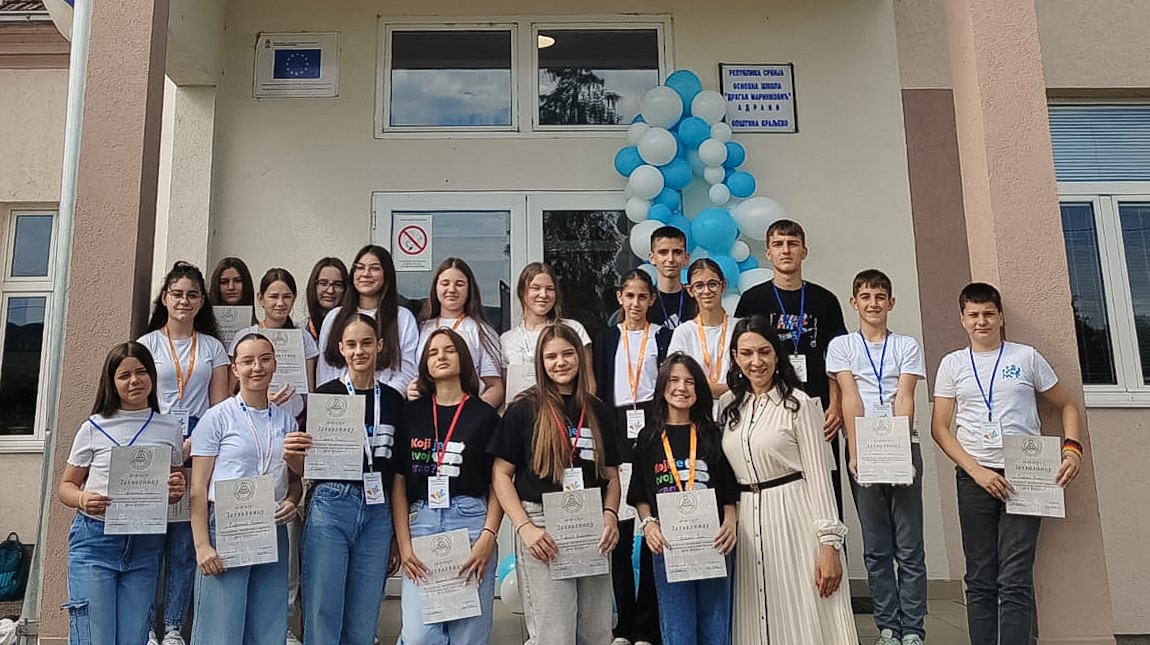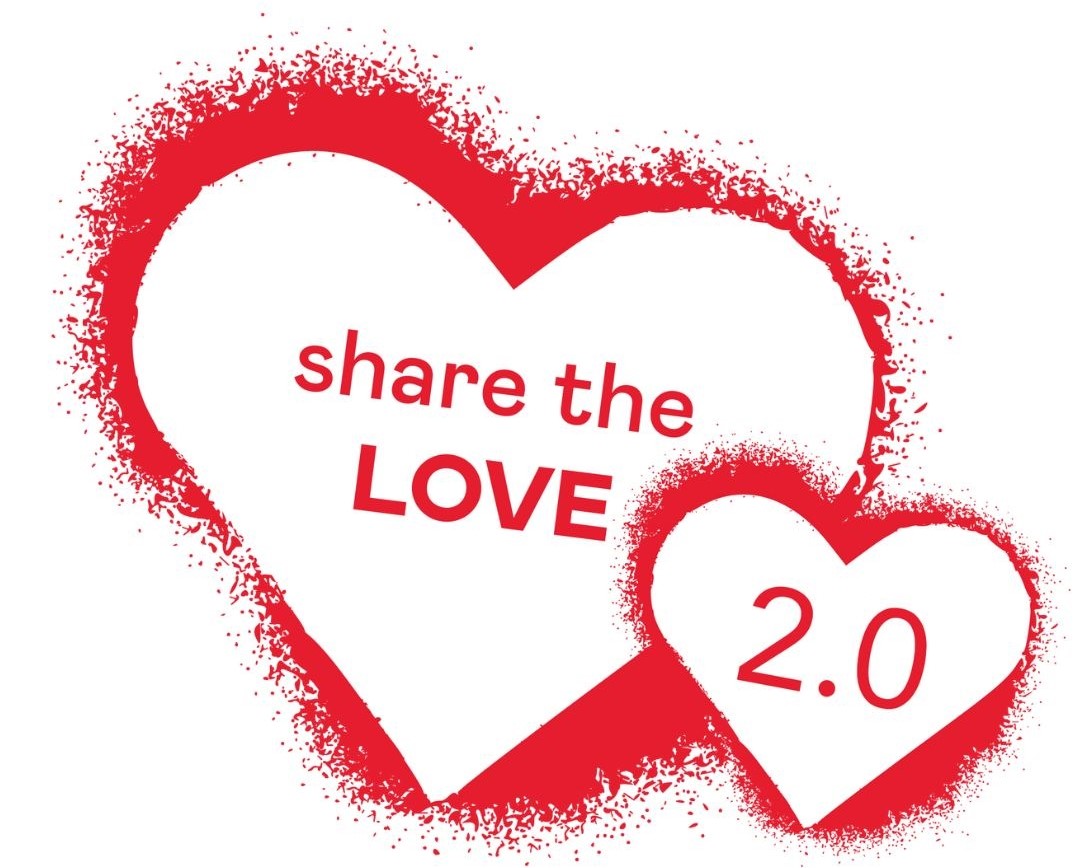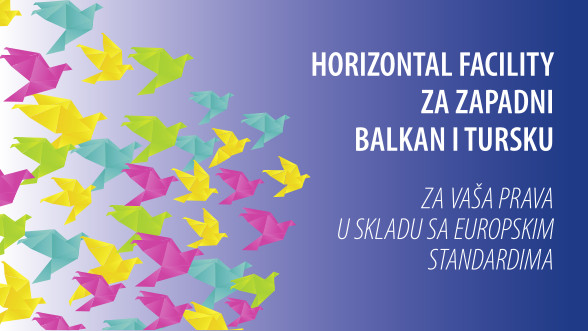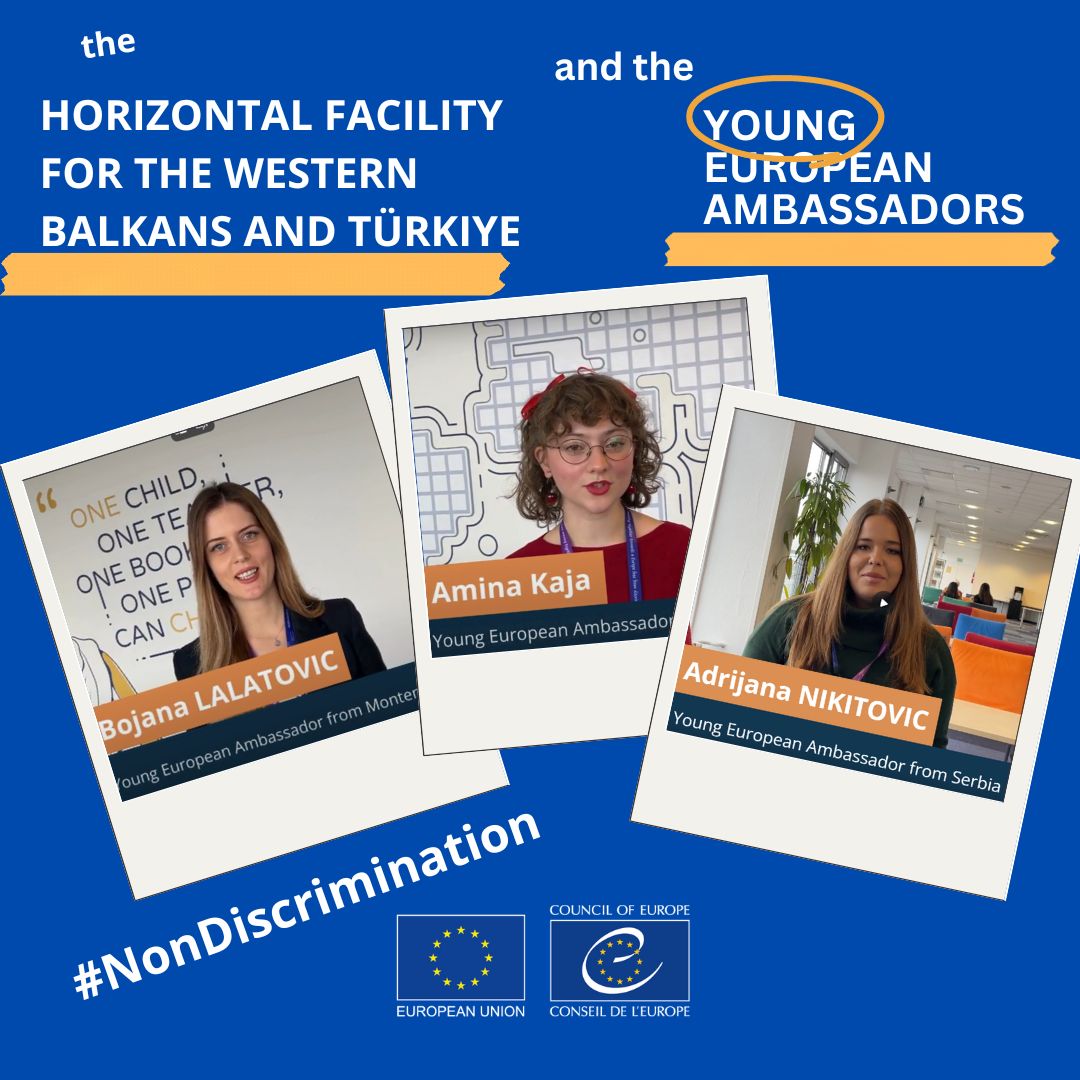When twelve-year-old Maša opened the door of her family home in Adrani, near Kraljevo, she wasn’t sure what to expect. A girl her age from Slovenia was about to stay with her as part of a school exchange. At first, the two were shy, carefully observing one another. But soon they found common ground like sketching, sharing stories, and exchanging words in their own languages.
“Although we spoke differently, we quickly understood each other because our languages are similar,” Maša remembers. “I showed her our school, our customs, what we eat, how we live. She taught me about Slovenia. I realised how important it is to respect differences and be open to new friendships,” she noted.
This friendship across borders is just one story from Dragan Marinković Primary School in Adrani. Since joining the European Union and Council of Europe joint action “Quality Education for All” in 2019, the school has become a mentor to others, showing how democratic culture and inclusion can move from paper into everyday practice.
Over the past year, it has focused on openness to different cultures and beliefs, valuing diversity, and strengthening communication and multilingual skills- principles that came alive during the exchange with a partner school in Maribor, Slovenia.
According to Jasna Savić, teacher and co-ordinator of the Quality education for all in the Adrani school, living with Slovenian families allowed them to discover a new school system and culture, while welcoming their peers in Kraljevo gave them the chance to put those values into practice. "It was a priceless experience and after all, democratic culture begins with understanding, and our students have learned to listen, respect, and collaborate,” said Jasna.
Beyond the classroom, the school has teamed up with the National Library Stefan Prvovenčani, turning books and stories into tools for empathy. “We nurture the idea that the library is an open space for knowledge and culture, accessible to everyone, especially pupils,” says the school’s acting director Danka Spasojević. She recalls projects like Children Around the World, where ambassadors introduced their countries through stories, or the Living Library, where “books” are people sharing life experiences. One of the most memorable encounters, she notes, was with a deaf colleague who gave children an eye-opening perspective on overcoming challenges.
For many pupils, these encounters have been transformative. “This year I met a blind girl who paints,” says Natalija Majstorović, a pupil volunteer adding that “her drawings were full of detail and emotion..." Listening to people with such difficult lives, but who still radiated positive energy, made her think about how often we judge each other without reason.
Parents have felt the difference, too. Jovanka Milunović, whose daughter Lena has autism, remembers the early days of first grade with worry. “Thanks to the dedication of the teacher, the assistant, and the Regional Resource Centre in Kragujevac, Lena progressed more than we expected. Most importantly, the other children accepted her as part of the class. Today I feel as a parent that our school is truly inclusive and full of understanding.”
The impact extends beyond the students themselves. Slovenian families, local teachers, and library staff joined hands to create a space where curiosity and respect thrive. For Maša and Ana, the friendships they forged are now bridges that connect Kraljevo and Maribor, showing that a small school in a quiet suburb can have a truly global reach, where lessons in empathy, tolerance, and cultural understanding leave a lasting imprint on everyone involved.
This initiative is carried out within the action “Quality education for all” which is part of the joint European Union and Council of Europe programme “Horizontal Facility for the Western Balkans and Türkiye”.




